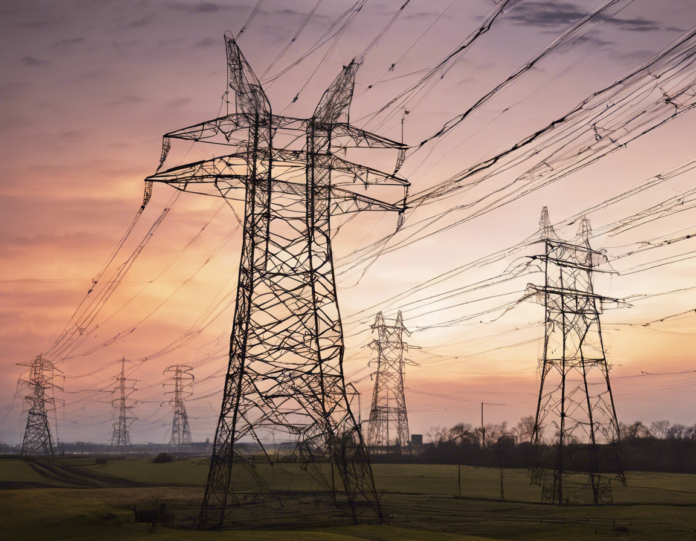As advancements in technology continue to reshape the energy sector, energy customers are experiencing a shift in their roles from passive consumers to active participants in the energy ecosystem. One of the key developments that has empowered energy customers is the evolution of energy payouts, where consumers are now able to earn rewards, incentives, and even monetary benefits for their contributions to the grid. This article delves into the concept of energy payouts, exploring how they work, their benefits, and the implications for both consumers and the energy industry.
The Evolution of Energy Payouts
Energy payouts, also known as demand response programs or energy incentive programs, are mechanisms that reward energy customers for modifying their electricity consumption patterns in response to signals from the grid operator. Traditionally, electricity grids operated on a centralized model where power was generated at large power plants and distributed to consumers. However, the rise of renewable energy sources like solar and wind power, coupled with the increasing penetration of smart technologies such as smart meters and IoT devices, has paved the way for a more decentralized and dynamic grid system.
How Energy Payouts Work
Energy payouts operate on the principle of demand-side management, where consumers are incentivized to adjust their electricity usage during peak demand periods or when renewable energy generation is abundant. By reducing their consumption or shifting it to off-peak hours, energy customers help balance the grid, reduce strain on the system, and integrate more renewable energy sources. In return, they receive financial rewards, rebates, credits on their electricity bills, or other forms of compensation.
Benefits for Energy Customers
Participating in energy payout programs can offer several benefits to energy customers. Firstly, it allows them to save money on their electricity bills by taking advantage of dynamic pricing schemes and incentives for reducing consumption during peak times. Secondly, it enables consumers to contribute to a more sustainable energy system by supporting the integration of renewable energy sources and reducing carbon emissions. Additionally, energy payouts can empower customers to take control of their energy usage, increase their awareness of consumption patterns, and drive energy efficiency measures in their homes or businesses.
Implications for the Energy Industry
The rise of energy payouts has significant implications for the energy industry as a whole. Grid operators and utilities are now faced with the challenge of balancing supply and demand in real-time, managing the integration of variable renewable energy sources, and engaging with a more proactive and informed customer base. This shift towards a more flexible and responsive grid requires investments in grid infrastructure, data analytics, and communication technologies to enable seamless coordination between all stakeholders.
Key Considerations for Energy Customers
For energy customers looking to participate in energy payout programs, there are several key considerations to keep in mind:
-
Understand the Terms: It is important to read and understand the terms and conditions of the program, including eligibility criteria, payout structures, and commitment requirements.
-
Invest in Smart Technologies: Leveraging smart devices, such as smart thermostats, appliances, and energy monitoring systems, can help optimize energy usage and maximize payouts.
-
Monitor Consumption Patterns: Keeping track of energy consumption patterns and trends can help identify opportunities for reducing usage during peak times and earning higher payouts.
-
Engage with Energy Providers: Building a relationship with energy providers and grid operators can provide access to valuable information, resources, and support for participating in payout programs.
-
Stay Informed: Stay updated on industry trends, policy developments, and technological advancements that may impact energy payouts and opportunities for participation.
Frequently Asked Questions (FAQs)
1. What are the different types of energy payout programs available to consumers?
Energy customers can participate in various types of programs, including demand response, time-of-use pricing, net metering, feed-in tariffs, and capacity markets.
2. How can energy customers maximize their payouts through demand response programs?
To maximize payouts through demand response programs, customers should be proactive in adjusting their energy usage, investing in energy-efficient technologies, setting up automation systems, and responding to grid signals promptly.
3. Are energy payouts available to residential customers only, or can businesses also participate?
Energy payout programs are open to both residential and commercial customers, offering businesses opportunities to optimize their energy costs, reduce operational expenses, and demonstrate corporate social responsibility.
4. What role do smart meters play in enabling energy payouts for customers?
Smart meters play a crucial role in energy payouts by providing real-time data on energy usage, supporting dynamic pricing models, enabling remote communication between customers and utilities, and facilitating more accurate billing and payouts.
5. How do energy payouts contribute to grid reliability and resilience?
By engaging energy customers in demand-side management and incentivizing load-shifting behaviors, energy payouts help reduce peak demand, alleviate stress on the grid during emergencies or extreme weather events, and enhance overall grid reliability and resilience.
In conclusion, energy payouts represent a transformative opportunity for energy customers to actively participate in shaping the future of the energy landscape. By embracing these programs, consumers can not only benefit from financial rewards and savings but also play a pivotal role in driving sustainability, innovation, and resilience in the energy sector. As the energy industry continues to evolve, energy customers have the power to make a profound impact through their energy choices and actions.
